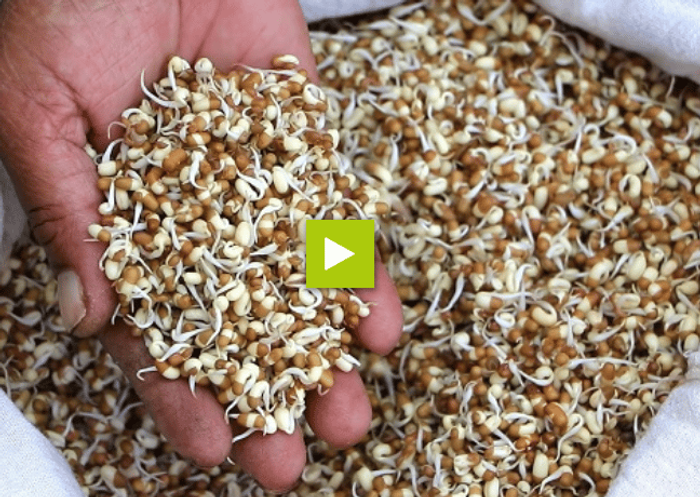Feed is one of the major factors that affect the performance of livestock production in relation to quality and quantity of products.
As livestock provide eggs, meat, milk and income to farmers, unbalanced feed affect livestock production negatively as it leads to the loss of animal weight, reduces on milk with less fats, hair loses colour in a few weeks and animal gets skin diseases. Balanced feed such as green fodder, concentrates, salt and minerals provide required nutrients.
Feed production
Sprouts are grains soaked in water and left to germinate as they are easier to digest than grains and can be produced through out year. This requires no land or structure to produce and can be obtained from any grain.
Similarly, soak 3 pieces of cloth in water, squeeze excess water, spread them on ground followed by spread of 50 grains on them a spacing of 1 finger and then fold other half of cloth on grains. Re wet cloth regularly to keep it moist and after 2-3 days open cloth to check for germination and calculate the germination percentage.
To produce sprouts, use good quality grains and put them in a container, add handful of salt, clean water and remove floating seeds. These are soaked for 12 hours, kept in shade and water is then removed. Additionally, keep grains in a clean cotton bag, close it to generate heat inside and keep bad inside house/ shade. In a hot weather, grains take 26-18 hours to germinate.
Continue by wrapping bag into blanket and once they germinate, remove them as they are ready to feed the animals. Feed 1/2 kg of sprout to each cow once a day together with other feed.
Finally, give 1 or 2 hand full of sprouts to sheep twice a week and feed i handful of sprout to 10 chicken once a day.



















